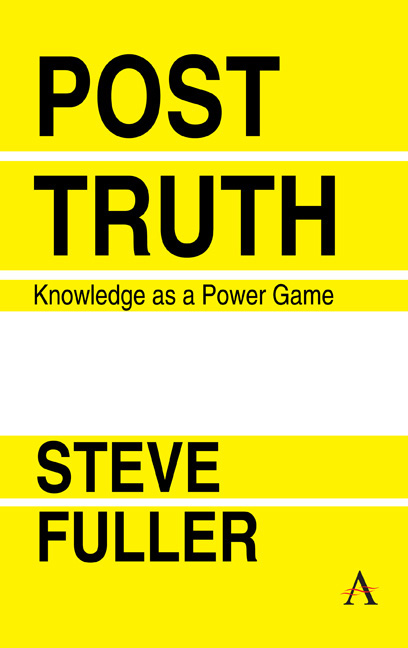
- Publisher:
- Anthem Press
- Online publication date:
- July 2018
- Print publication year:
- 2018
- Online ISBN:
- 9781783086955
Our systems are now restored following recent technical disruption, and we’re working hard to catch up on publishing. We apologise for the inconvenience caused. Find out more: https://www.cambridge.org/universitypress/about-us/news-and-blogs/cambridge-university-press-publishing-update-following-technical-disruption

'Post-truth' was Oxford Dictionaries 2016 word of the year. While the term was coined by its disparagers in the light of the Brexit and US presidential campaigns, the roots of post-truth lie deep in the history of Western social and political theory. Post-Truth reaches back to Plato, ranging across theology and philosophy, to focus on the Machiavellian tradition in classical sociology, as exemplified by Vilfredo Pareto, who offered the original modern account of post-truth in terms of the 'circulation of elites'. The defining feature of 'post-truth' is a strong distinction between appearance and reality which is never quite resolved and so the strongest appearance ends up passing for reality. The only question is whether more is gained by rapid changes in appearance or by stabilizing one such appearance. Post-Truth plays out what this means for both politics and science.
 Loading metrics...
Loading metrics...
* Views captured on Cambridge Core between #date#. This data will be updated every 24 hours.
Usage data cannot currently be displayed.